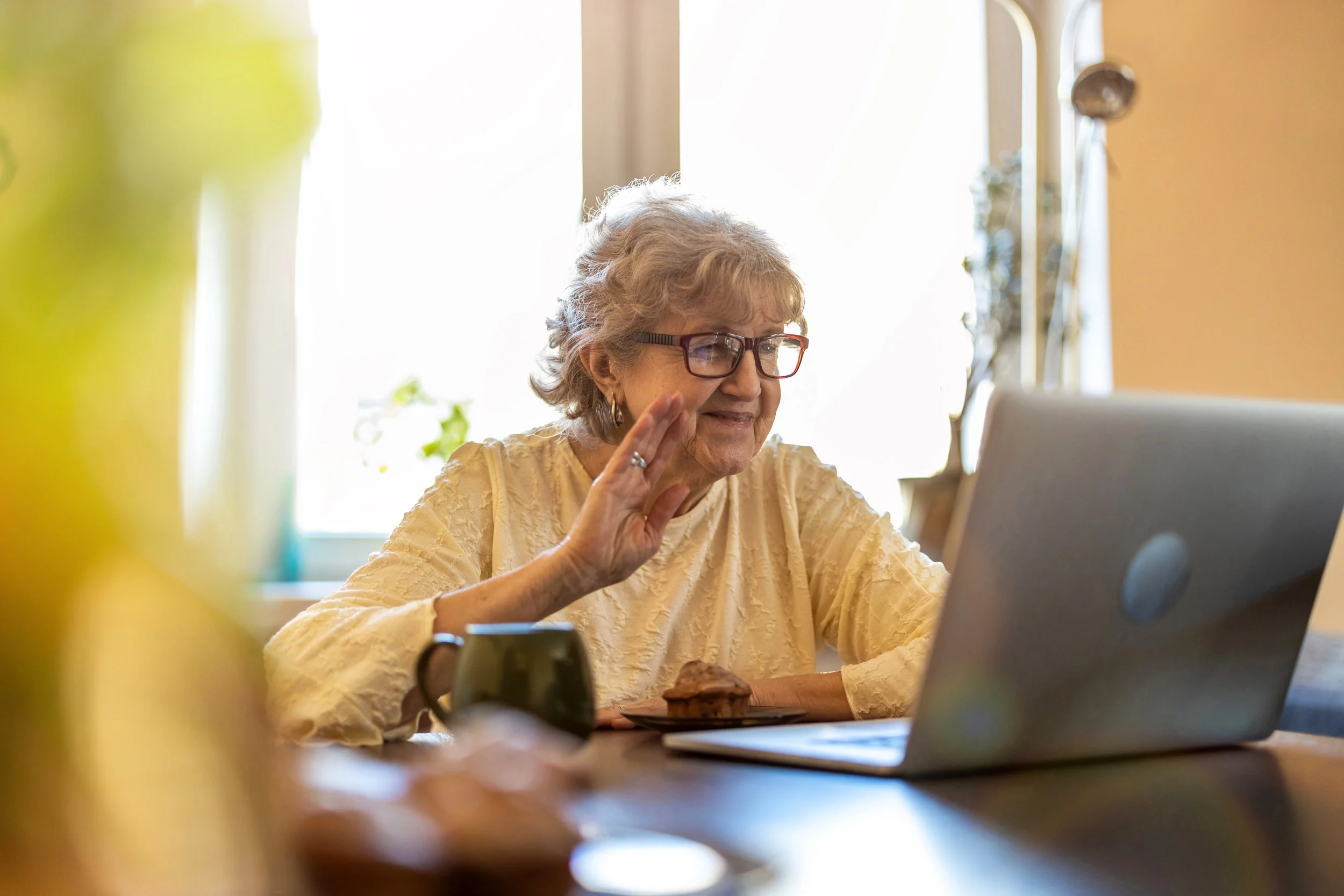
Group Medical Visits
Accessible, supportive care at no cost to you — covered by MSP and designed to help you take charge of your pain.
Group Medical Visits (GMVs) offer movement, education, connection, and support. These visits are hosted virtually and facilitated by clinicians who care.
Already a patient? Book a Group Medical Visit now.
What is a GMV?
A Group Medical Visit is a longer, virtual session led by a licensed physician and supported by clinicians such as physiotherapists or other allied health professionals. These sessions blend pain science education, self-management strategies, and movement-based practices — all backed by research and delivered in a compassionate, community-centred format.
GMVs are not a replacement for your in-person care. Instead, they complement your existing treatment plan and help you build skills to feel better and do more.
What to Expect
Each session is welcoming and low-pressure. Most include:
Education: Learn how pain works in the body and brain
Guided practice: Movement therapy or mindfulness exercises
Group Discussion or Q&A: Share, ask questions, or just listen
Resources: Materials to support what you’ve learned
All sessions are designed to help you feel safe, seen, and supported. Come learn, move, and heal together.
Core GMV Offerings
-
This group medical visit is designed to help you begin, or return to, movement in a way that feels safe and accessible.
We explore the idea that movement is medicine, not by pushing or fixing, but by helping the nervous system feel calmer and more capable. Through mindfulness, breathing, and gentle movement, you’ll learn simple, practical ways to support regulation and build trust in your body.
Each session includes guided breathing, a short meditation, and simple mindful movement that can be done seated or standing. No equipment or prior experience is required, and there is no expectation to push through pain.
You will leave with practical tools and resources you can continue using on your own, so gentle movement can remain part of your care in a way that feels realistic and supportive.
-
This class introduces the ancient practice of Qi Gong, using slow, flowing movements and breathwork to calm the nervous system, reduce tension, and support healing. No prior experience needed — just a willingness to move with intention.
-
This group medical visit introduces yoga as a gentle, accessible way to support people living with persistent pain. In this session, you’ll explore simple postures, mindful movement, and breathing practices designed to calm the nervous system, improve body awareness, and foster a sense of safety in movement.
No previous yoga experience is required. Modifications will be offered so you can participate at your own comfort level — whether seated in a chair, standing, or laying down.
-
This class integrates evidence-informed movement, breathwork, and body awareness strategies shown to support nervous system regulation and improve functional mobility. You will be guided through gentle, Pilates-based exercises that are adaptable to all abilities, with a focus on moving safely and confidently.
-
This 2-hour, single-session pain education workshop is based on Stanford research. Learn why pain persists, how it’s processed in the brain and body, and practical tools to reduce it. Leave with a personalized pain relief plan to support daily function and help you regain a sense of control.
-
Pain is complex, but understanding it can reduce its impact. This supportive session helps you make sense of why pain can persist and how the nervous system influences symptoms. You will leave feeling more confident in your body and with practical tools to support recovery.
-
This 3-session series supports people living with persistent pain or fatigue to better understand their energy, reduce flare-ups, and find a more sustainable rhythm for daily life. You’ll learn practical pacing, planning, and energy-saving strategies to help move away from the boom–bust cycle and build greater confidence in managing activity over time.
-
Living with chronic pain or fatigue can make sleep difficult, and poor sleep can in turn worsen pain and exhaustion. In this group session, you’ll learn how sleep and pain are connected and explore practical, evidence-based strategies to support better rest.
The focus is on simple, realistic changes such as routines, timing, and daily habits that can support improved rest and nervous system regulation over time, without aiming for perfect sleep. This session offers key highlights and tools you can start using right away.
-
This 8‑session Pain Reprocessing Therapy (PRT) series helps participants understand the brain’s role in chronic pain, teaching evidence‑based techniques to calm the nervous system. Each group session blends education, somatic practices, and peer support to reduce fear and promote healing through neuroplasticity.
Learn more about PRT here.
-
This group medical visit offers a gentle introduction to somatic tracking, a core practice within Pain Reprocessing Therapy (PRT), followed by a guided grounding and awareness practice. Somatic tracking involves mindfully noticing physical sensations with curiosity and a sense of safety, helping to calm the nervous system and reduce fear-based responses to the body.
The guided practice emphasizes regulation and flexibility rather than duration or performance. There is no structured movement. Participants may practice seated, lying down, or standing, and are encouraged to adjust positions or take breaks as needed. Prior experience with PRT is not required.
-
Explore the role medications can play in pain care, from over-the-counter options to prescriptions. This session focuses on informed decision-making, helping you understand risks, benefits, and how to talk to your care team about your choices.
-
Procedures—like injections, nerve blocks, radiofrequency ablations or other interventions—can sometimes play a role in managing persistent pain. But they are just one tool in the toolbox. In this group medical visit, Dr. Noah Alexander will walk you through the most common procedures offered for pain, what they can and can’t do, and how they may fit into a broader recovery plan. You’ll gain a clearer understanding of what to expect before, during, and after these interventions, which clinics offer them, and how to decide (with your care team) whether a procedure might be right for you.
-
This session is designed to help you bring together everything you’ve been learning and shape it into a practical, personalized plan for your next steps. We will review the key skills that support recovery, explore what belongs in your own “backpack” for the journey ahead, and help you identify what to prioritize in your daily life.
We will also look at how Pain Recovery’s group medical visits can fit into your ongoing care and discuss other supports that may be helpful alongside them. By the end of the session, you will leave with a clearer sense of direction, a set of strategies that feel realistic for you, and a plan that reflects what matters most in your recovery journey.
Eligibility & Coverage
Group Medical Visits are fully covered by MSP and available to adults living in British Columbia who have a valid Personal Health Number (PHN). You'll need a referral from a doctor or nurse practitioner to access our pain management services. If you don’t currently have a provider who can refer you, you’re welcome to join one of our free Introductory Sessions, where we can help you explore your options.
Already a patient? Book a session.


